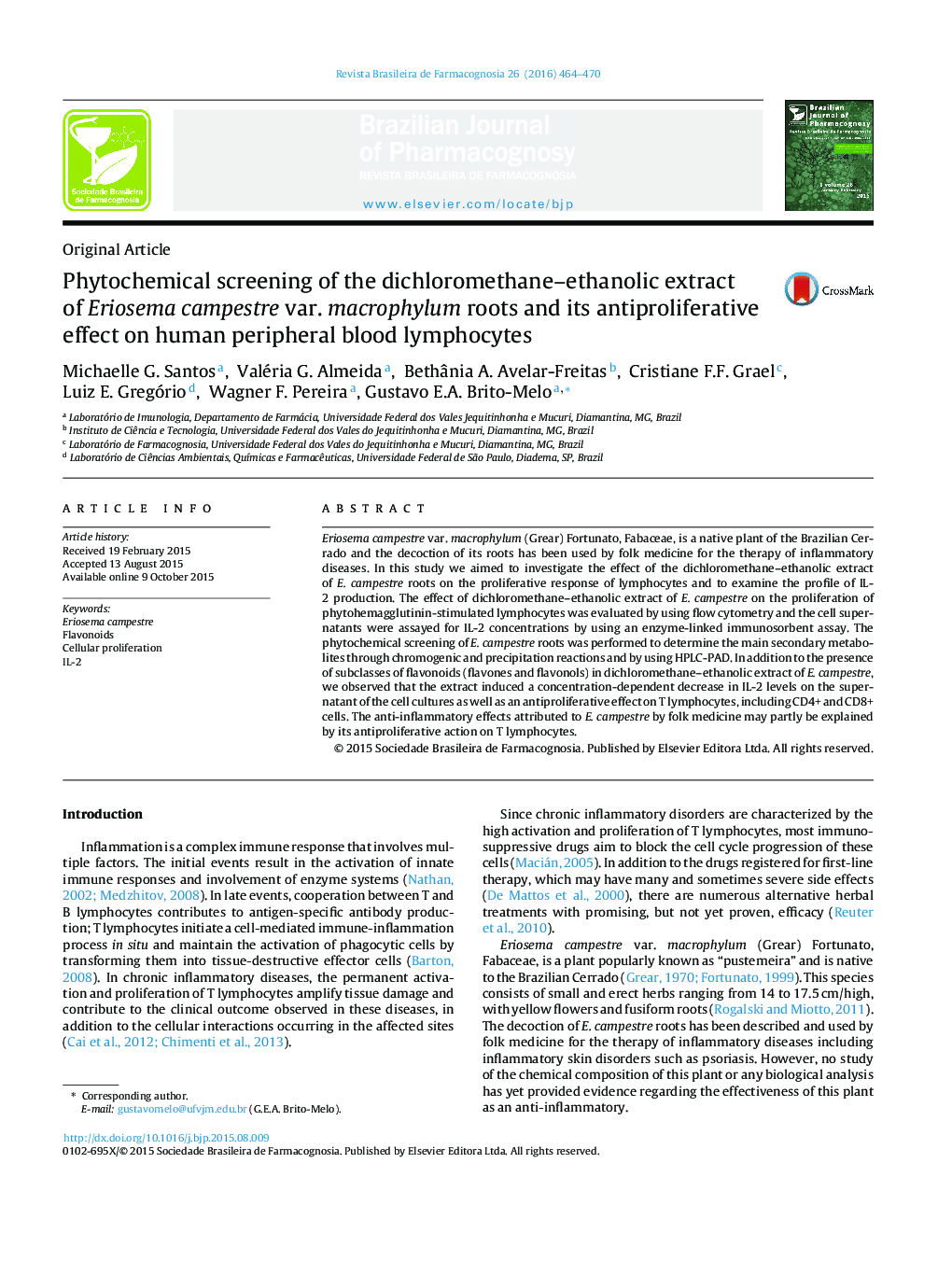| Article ID | Journal | Published Year | Pages | File Type |
|---|---|---|---|---|
| 2577519 | Revista Brasileira de Farmacognosia | 2016 | 7 Pages |
Eriosema campestre var. macrophylum (Grear) Fortunato, Fabaceae, is a native plant of the Brazilian Cerrado and the decoction of its roots has been used by folk medicine for the therapy of inflammatory diseases. In this study we aimed to investigate the effect of the dichloromethane–ethanolic extract of E. campestre roots on the proliferative response of lymphocytes and to examine the profile of IL-2 production. The effect of dichloromethane–ethanolic extract of E. campestre on the proliferation of phytohemagglutinin-stimulated lymphocytes was evaluated by using flow cytometry and the cell supernatants were assayed for IL-2 concentrations by using an enzyme-linked immunosorbent assay. The phytochemical screening of E. campestre roots was performed to determine the main secondary metabolites through chromogenic and precipitation reactions and by using HPLC-PAD. In addition to the presence of subclasses of flavonoids (flavones and flavonols) in dichloromethane–ethanolic extract of E. campestre, we observed that the extract induced a concentration-dependent decrease in IL-2 levels on the supernatant of the cell cultures as well as an antiproliferative effect on T lymphocytes, including CD4+ and CD8+ cells. The anti-inflammatory effects attributed to E. campestre by folk medicine may partly be explained by its antiproliferative action on T lymphocytes.
Graphical abstractFigure optionsDownload full-size imageDownload as PowerPoint slide
